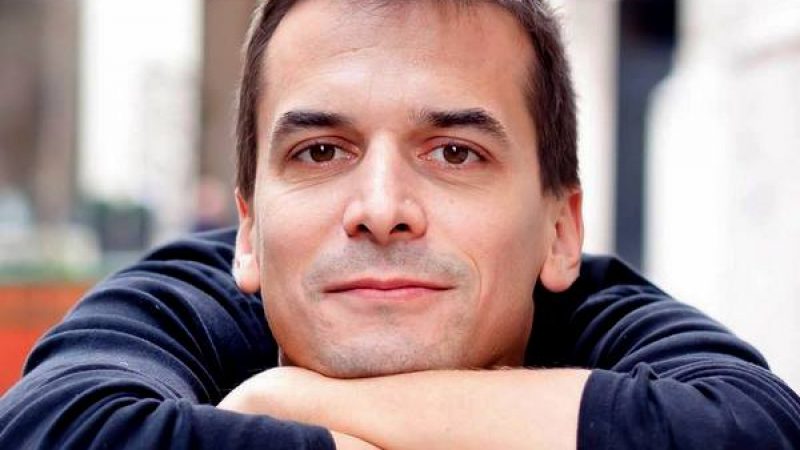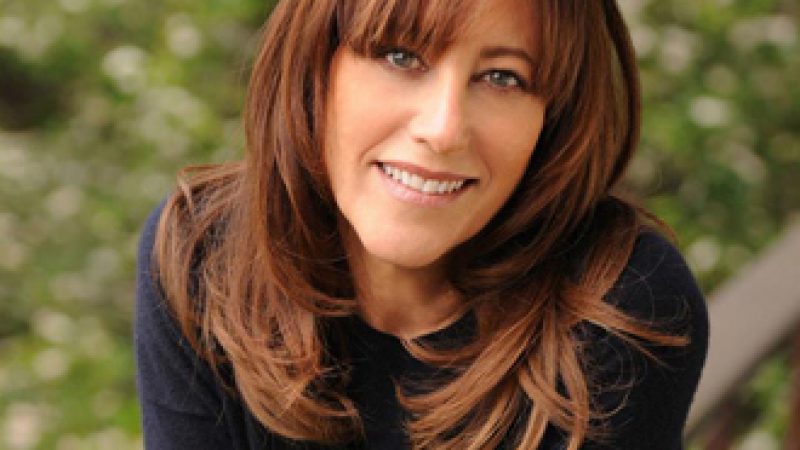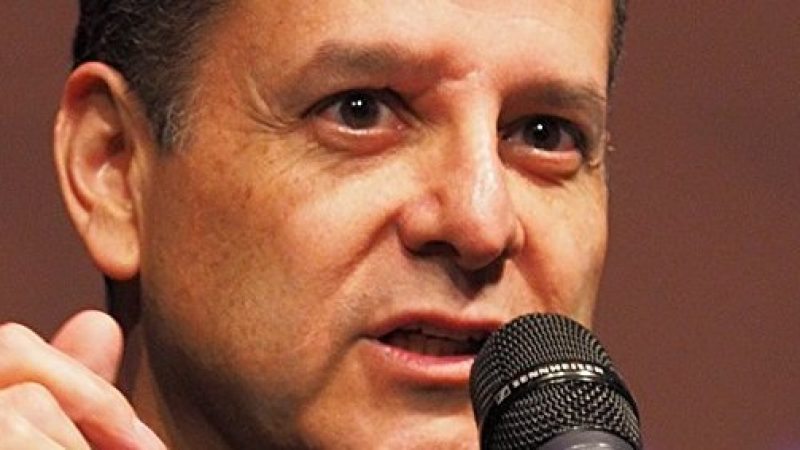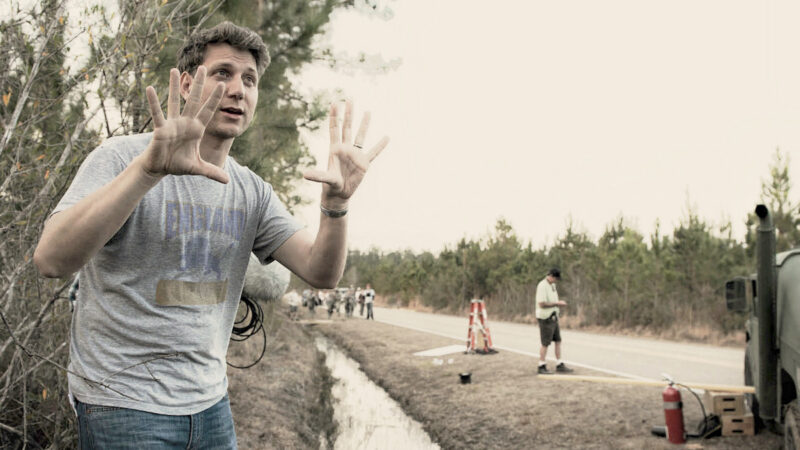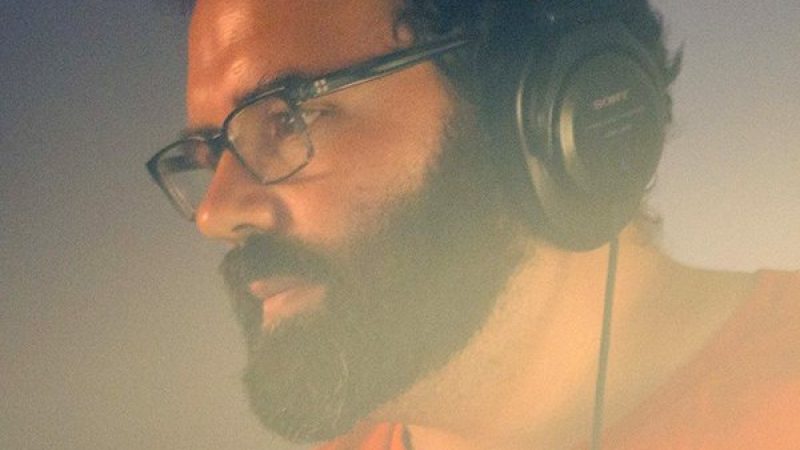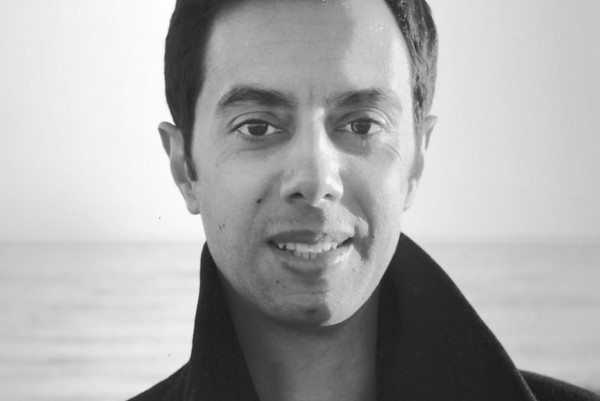
I grew up in South of France and picked up a guitar at 15y whilst studying Applied Arts there (Graphic design, Architecture, product design etc). I then moved to London at 18 to further my Design studies with a BA in furniture Design and started recording on 4 tracks machines and fronting my own band. The studies ended but the Design ethos stayed with me ever since and they inform everything I do when I compose to picture.
Over the years, I studied music production, music theory at Berklee and orchestration with Hollywood orchestrator Conrad Pope and ran my own companies Soulem productions for producing UK Soul artists and Intricuts Music catering for prime-time UK TV networks. I got into film scoring around 2012 and really started considering myself a composer at that point! This year I finally put out my own freeform music away from picture. Future plans are to grow my film and TV scoring career even more and to release more freeform music.
indieactivity: Is this what you have always wanted to do?
Mathieu: Not really. My first instruments were paintbrushes and pencils, not guitars or pianos. I never envisaged I would ever become a film/TV composer because my mind was always set on visual stuff. Growing up I would hear John Williams’ fantastic scores and though I enjoyed them, it was never something I thought I could ever do, it was way too complex for me.
At the age of 8yo, I nearly took violin lessons but my grandfather’s violin needed some serious repairing. We couldn’t afford the repairs nor the lessons and so that was the end of that! Through my DJ brother and friends, I grew up listening to a lot of Soul music as well as Arabic music, some Classical, Jazz and soundtracks. All these have informed my work ever since.
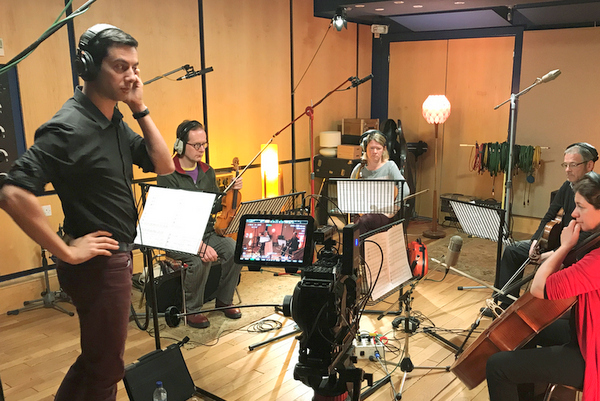
indieactivity: Give us an idea of a regular day at work?
Mathieu: There are so many aspects to this job; from answering emails, promoting my work, writing music, developing my own projects etc and the day is structured according to what is priority or what is currently happening. If I’m working on a score, that takes centre stage because I need time to ‘digest’ the film, to think, to experiment and then to shape the music.
Physically I tend to work 9-5pm with my fitness regime in the morning but mentally I am constantly thinking about music and my career, you never switch off unless you make yourself switch off! When things are quiet, there’s always events to go to, new contacts to approach, studying new music pieces and experimenting. Being a composer I think it’s important to compose everyday. It helps to strengthen your muscles, your ‘voice’ and to cover any music eventuality. I am naturally inquisitive with music and I like to explore regularly and discover new ideas that could be useful for my next project.
indieactivity: What is the work process on a typical film?
Mathieu: I usually get a rough cut of the film with or without temp music attached. The temp music doesn’t really bother me actually, it gives me a rough idea of what the director might be looking for. Then I’ll watch the film many times to ‘digest’ it. I like communicating a lot with a director. For me it’s very important that I understand their intentions, their vision as that will inform how my score can best represent the film. I view a film score as bringing out the identity as well as the emotion of the film with the right sound palette and arrangements.
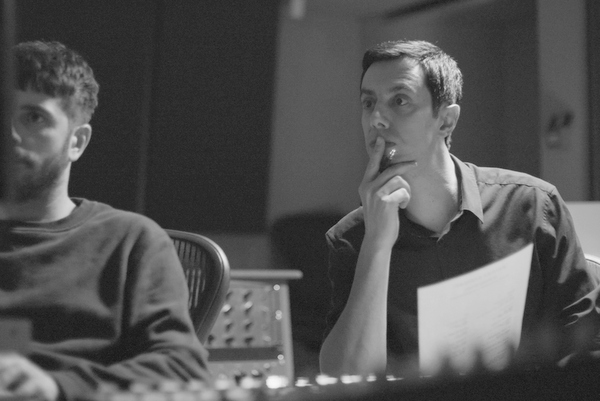
Very often, music is treated as an afterthought (and that includes budgeting for it) but really its impact is so powerful. Once we’ve identified what could work musically, I’ll start composing a few ideas. Things really start to take shape when music is applied and the film comes alive. The process is often like going backwards and forwards when you are trying to fit the right music to picture so that it can enhance it, underline the emotion, describe an atmosphere or represent a central character. I also like to communicate with the sound design team as our work needs to cohabit together.
indieactivity: Describe the scoring process behind ‘Kathmandude’ your latest short.
Mathieu: Director Jacob Kirby approached me a while back to score ‘Kathmandude’; the story of an American traveller who escapes his life back home by going to Nepal on a psychedelic trip. There, he discovers more about himself and why he needs to go back home and face reality.
At the first draft, Jacob already had stunning visuals and I loved the central character displaying vulnerability with a very strong on-screen presence. These were inspiring enough to me and the challenge was to write music that had a Tibetan/Asian flavour without being pastiche. Luckily, we had on hands Jason Kunwar, a native musician who would advise us. I also wanted to be true to the character and how we are experiencing this moment through him: the music could be an abstraction, more like sensations, native sounds coming in and out of a musical patchwork. So I married acoustic guitars with drones, sitars, tabla and other percussions to tell the story.
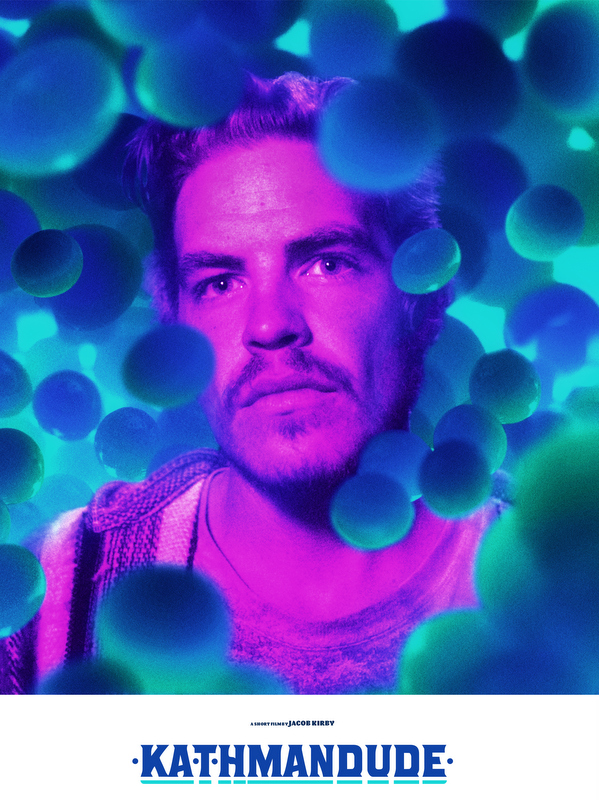
The short was so well received that we were awarded Best score and Best Sound Design at Shorts Sounds Film Festival in Bournemouth UK!
I mentioned earlier working with the sound design team; in this instance Matt Yocum’s fantastically detailed work really enhanced what I did, bringing out certain subtleties, blending my music with other-worldly sounds. It’s a dream team really!
indieactivity: What advice do you give to growing composers?
Mathieu: Work at being you musically by developing your voice and understanding your capabilities and limitations.
When I started out in TV, although I thoroughly enjoyed the work I didn’t really stop to think about what I was doing, I was too busy working. Until, I sat down and started connecting the dots between different jobs and my scoring work in Film, I realized that I somehow had a distinctive ‘voice’ and a way of approaching composing to picture. Further on, when I developed compositions away from screen, I also realized that that was the same approach, just not tailored to picture.
So it’s like working out at the gym, you keep working at being you musically in order to strengthen your creative muscles and your self-confidence. The other advice would be to be prepared for the long haul as each composer’s career is different. Some people get to do big jobs in their twenties, others later on, and each connection you make will be what you are attracting for your career. So really there’s no competition because we all specialize in ourselves, with our paths different from each other’s.
indieactivity: What’s next for you?
Mathieu: I have some potential new film jobs lining up in early January which I can’t talk about yet and I’ve been working on my next independent release for 2018: a suite for solo violin set to an ambient background inspired by Japanese classical music!
Follow Mathieu Karsenti on Social Media
Director Amy Glazer Brings Kepler’s Dream to Life
An 11 year old searches for a missing rare book from her grandmother’s library
How I Made My Film, ‘Fear, Love & Agoraphobia’ by Alexander D’Lerma
A Step by Step Filmmaking Process of Fear, Love & Agoraphobia
The Key Facts Behind How Jeff Nichols Made The Indie Hit MUD
Jeff Nichols gives himself directorial challenges to master on every project.

